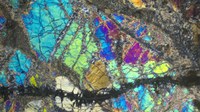Two PhD positions and two PostDocs started in 2021. If you are interested in the Deep Carbon Lab research activities and opportunities, please contact Alberto Vitale Brovarone. The University of Bologna is committed to increasing the number of women in research and therefore applications from female candidates are strongly encouraged.

Petrological and geochemical study of H2-rock interactions at high-pressure conditions
Supervisor: Alberto VITALE BROVARONE (University of Bologna); Potential collaborators (upon profile of the selected candidate): Simone Tumiati (Milan University, Italy); Julie Cosmidis (Oxford University, UK), Jay J. Ague (Yale University, USA); Dimitri A. Sverjensky (Johns Hopkins University, USA); Eugene Gregoryanz (Edinburgh University, UK)
A three-year PhD position will be available at the University of Bologna, Italy, to participate in an EU-funded, ERC Consolidator grant on high-pressure natural H2 and abiotic methane in subduction zones.
The PhD project will focus on H2-mineral interactions at subduction zone metamorphic conditions. Upon the profile of the selected candidate, the study may include field, petrological, geochemical, laboratory experimental, and/or theoretical approaches and geological to geobiological topics. A Master degree (or equivalent) in Earth Sciences is required. The applicants should demonstrate a strong interest and existing knowledge in topics such as metamorphic petrology, geochemistry, geo-microbiology, astrobiology, and fluid-rock interactions, and have experience with analytical/modeling techniques in petrology and/or geochemistry.
The project is fully funded by the ERC Consolidator Grant DeepSeep. The successful candidate will be one of two PhD students due to start in November 2022, and one of a cohort of four PhD students and several PostDoc researchers to be hired during the 5 years of the project. Soft skills will be required within the group and international collaborations.
The PhD candidate will be based at Alma Mater Studiorum, University of Bologna, the oldest university in the Western World and one of the biggest universities in Italy (https://www.unibo.it/en/university/who-we-are/our-history). The city of Bologna was ranked first for life quality in Italy in 2020.
The call is available here: https://www.unibo.it/en/teaching/phd/2022-2023/earth-life-and-environmental-sciences
Potential candidates are kindly invited to contact the PI of the project (alberto.vitaleb@unibo.it) as of now for general information, by providing a CV, a full publication list, a statement of interest, and contact information of three potential referees. The University of Bologna is committed to increasing the number of women in research and therefore applications from female candidates are strongly encouraged.
Some DeepSeep-related literature:
Giuntoli, F., Vitale Brovarone, A., & Menegon, L. (2020). Feedback between high-pressure genesis of abiotic methane and strain localization in subducted carbonate rocks. Scientific Reports, 10(1), 1–15. http://doi.org/10.1038/s41598-020-66640-3
Vitale Brovarone, A., Sverjensky, D. A., Piccoli, F., Ressico, F., Giovannelli, D., & Daniel, I. (2020). Subduction hides high-pressure sources of energy that may feed the deep subsurface biosphere. Nature Communications, 1–11. http://doi.org/10.1038/s41467-020-17342-x
Vitale Brovarone, A., Martinez, I., Elmaleh, A., Compagnoni, R., Chaduteau, C., Ferraris, C., & Esteve, I. (2017). Massive production of abiotic methane during subduction evidenced in metamorphosed ophicarbonates from the Italian Alps. Nature Communications, 8, 14134–13. http://doi.org/10.1038/ncomms14134
Pena-Alvarez, M., Vitale Brovarone, A., Donnelly, M.-A., Wang, M., Dalladay-Simpson, P., Howie, R., Gregoryanz, E., 2021. In-situ abiogenic methane synthesis from diamond and graphite under geologically relevant conditions. Nature Communications,12, 1-5
Peng, W., Zhang, L., Tumiati, S., Vitale Brovarone, A., Hu, H., Cai, Y., Shen, T., 2021. Abiotic methane generation through reduction of serpentinite-hosted dolomite: implications for carbon mobility in subduction zones, Geochimica et Coscmochimica Acta, 311, 119-140.